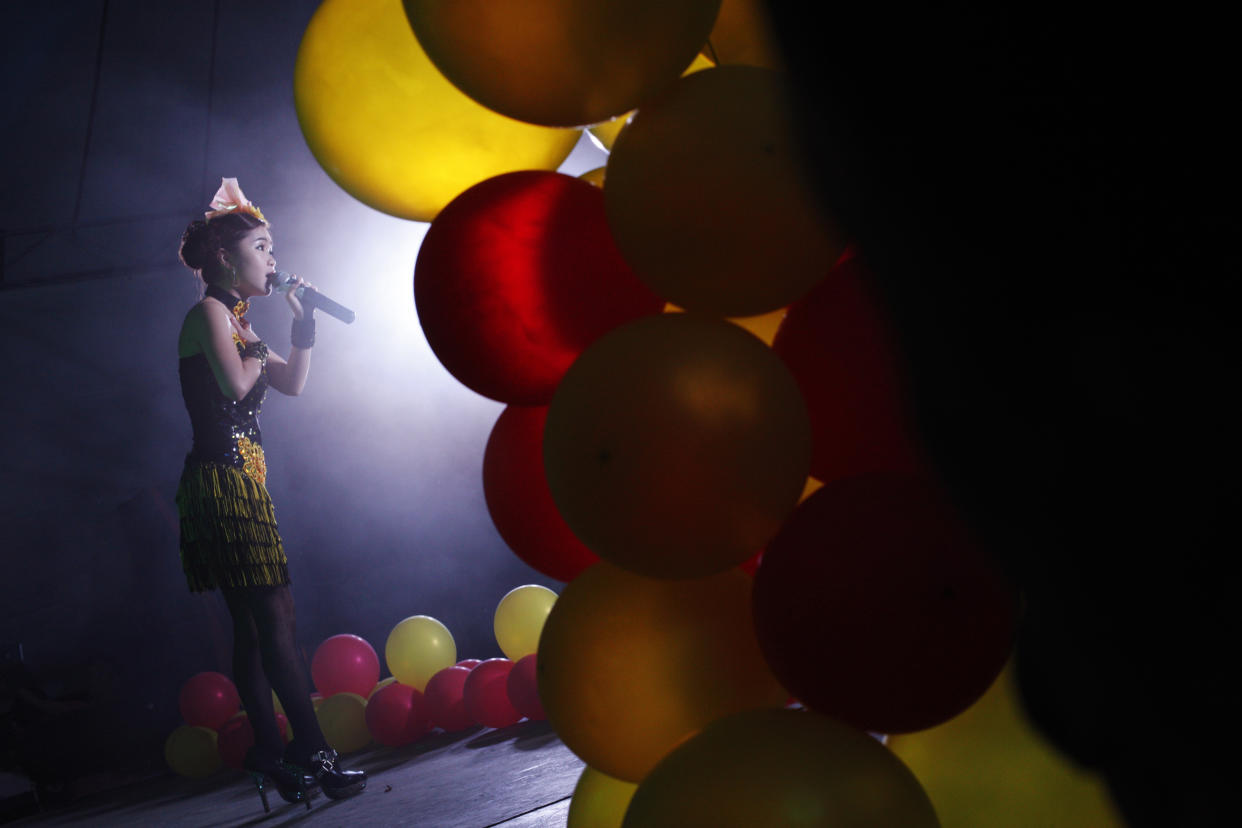COVID-19: Guidelines for 7th lunar month activities issued, getai and auctioning prohibited

SINGAPORE — The safe management guidelines for the upcoming seventh lunar month activities have been issued including the prohibition of live getai, auctioning, and dinners.
Religious organisations can consider alternative forms such as digital recordings that allow their worshippers to safely participate in such activities during hungry ghost festivities, said the Ministry of Culture, Community and Youth (MCCY) on Friday (7 August) in a statement published on its website.
Otherwise, religious organisations are allowed to conduct prayer services for up to 50 people, excluding religious and supporting workers, the MCCY added. They can continue to allow the customary visits to columbaria in their places of worship if the columbaria have already been permitted to operate in Phase Two.
However, religious organisations must have submitted their safe management plans for Phase Two at least three days before proceeding with any activity as part of the seventh lunar month, set for 19 August to 16 September.
Those requesting deviations from the parameters set out by the MCCY will require the ministry’s approval before proceeding with their activities.
“The MCCY reserves the right to suspend a religious organisation’s activities if there are gaps in the (plan) submitted and until the necessary rectifications are made. Should there be any confirmed COVID-19 cases linked to (its) 7th lunar month activities, (its) operations and/or premises may be closed for a period of time as determined by the authorities,” said the ministry.
They must observe the following safe management measures in place for activities during the seventh lunar month, in addition to existing measures for religious activities in Phase Two. Those include mandatory temperature taking and registration, frequent cleaning of premises, and no sharing of prayer items:
Prayer services
Prayer services should be kept to as short a duration as possible. Worshippers should leave immediately after performing their prayers. There should be no mingling between worshippers before, during or after the prayer service.
Worshippers are to observe one-metre safe distance between themselves and others if they are worshipping individually. Worshippers may also worship in groups of no more than five, with one-metre safe distancing between groups.
All those present must wear a face mask at all times.
Those who are involved in the conduct of the prayer service – e.g. religious leader, priest, or monk – may wear a face shield when performing their speaking duties and must be at least one-metre away from any other individual.
Worshippers can burn incense and joss paper within the premises that the prayer services are held and should do so responsibly.
Singing and other live performances are not permitted during the prayer service.
Premises, where the prayer services are held, should be well-ventilated. Premises that have reduced air circulation should, where possible, open doors and windows to naturally ventilate the space after use.
No receptions or on-site meals are allowed before or after the prayer service. Religious organisations are allowed to distribute takeaway meals, pre-packed staple food items and prayer packages to worshippers.
Religious organisations are allowed to conduct these prayer services in their places of worship, bearing in mind the cap on capacity. They can also be conducted in venues outside of places of worship if they are done so by organisations with a good track record of implementing safe management measures, or by religious workers endorsed by them.
Separately, permits and approvals must still be obtained from the premise owners and relevant authorities.
Those that do not have such a track record must first seek the support of the Taoist Federation or the Singapore Buddhist Federation, before their applications to use external venues are considered by the relevant authorities or premise-owners.
Religious organisations may set up tentage for the prayer services, subject to approval from relevant agencies.
Visits to the columbaria
Visitors must maintain a safe distance of at least one-metre at all times. Families who visit the columbaria in groups are limited to no more than five people in a group. There should be at least one-metre safe distancing between groups and no mingling between groups.
These visits should be kept as short as possible.
These visits and other permitted religious activities – excluding seventh-month prayer and other worship services – can take place concurrently at the place of worship subject to a total cap of 50 people, excluding religious and supporting workers.
However, these activities must be conducted safely at separate locations within the place of worship. There must be adequate signs and directions to guide the different parties such that they do not interact or meet each other while in the premise.
Stay in the know on-the-go: Join Yahoo Singapore's Telegram channel at http://t.me/YahooSingapore
Other Singapore stories:
Ng Teng Fong GH unveils bio-aerosol containment units for COVID-19, other critically ill patientsa
Delivery driver jailed for hit-and-run while drunk, causing death of 70-year-old
NDP fireworks to launch at 10 islandwide locations for S'poreans to enjoy from home
Stricter laws, tougher penalties to curb vice trend in heartlands



